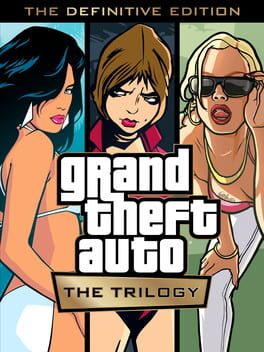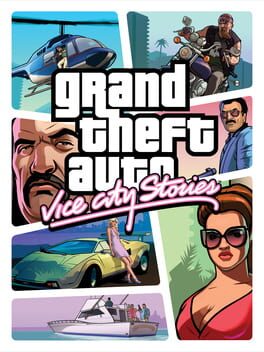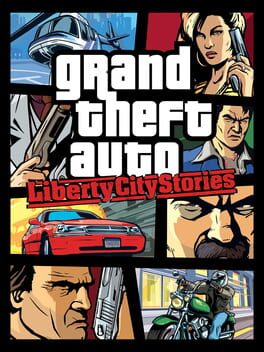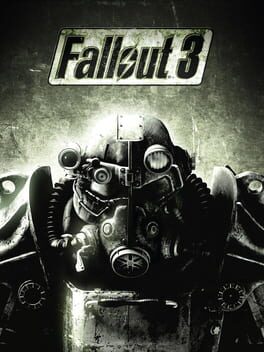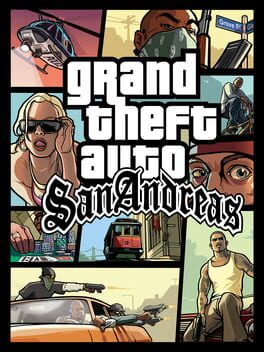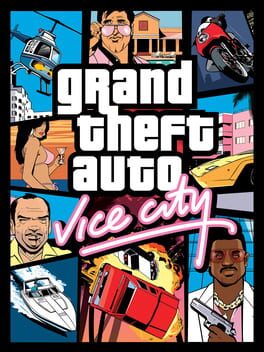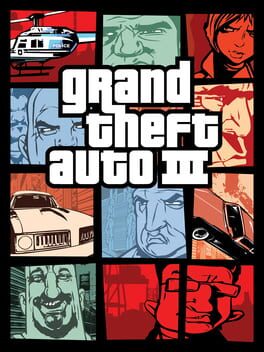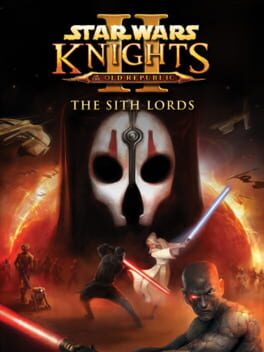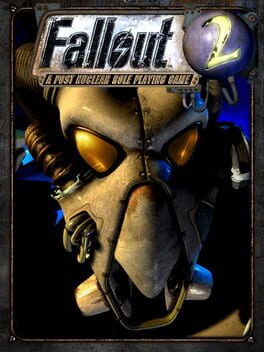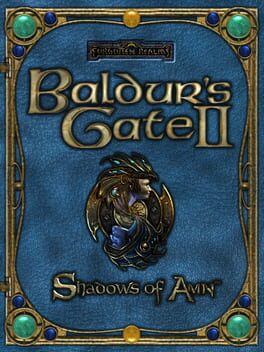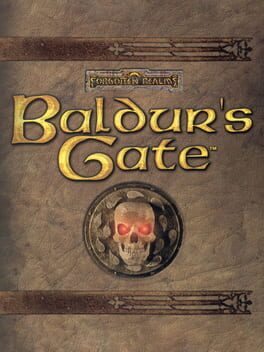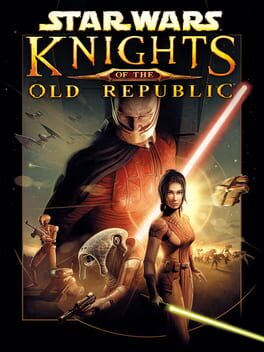Waikay
2010
This write-up will consider only the base-game.
A game this good, a game this good so often talked about, a game this good in a nigh-extinct manner, cannot help but attract imprecise praise. By some, New Vegas is a refreshing turn away from the omni-simplistic Bethesda present to the morally, mechanically complex Interplay past. My most controversial take is as follows. This line of thinking dramatically underappreciates the skeleton of Fallout 3: the VATS, the shooting, the boneless physics, the ability to walk and crab-walk any direction in the Mojave. These qualities, continuing onwards from Fallout 3, contribute to the sense of freedom just as much as all the items in that now-familiar list, of "How Obsidian Showed Bethesda What's What": deeper companions, the factions, the endearing world, the threshold skill checks, that one Vault where the dwellers were forced to kill each other, being able to throw the loser NCR general off the Hoover Dam.
That sense of freedom to define the self and the world is why many fans regard New Vegas so highly. Over 3, 4, 76 for sure, but as those people will more cautiously insinuate, over the originals 1 and 2 as well. I am sympathetic. I like Obsidian and sometimes Bethesda. And to have their such genre-defining idiosyncrasies come together remains a mysteriously unsung miracle. But prior to the intervention of the DLCs, the true revelation of Avellone and Obsidian's narrative colors, many ways the true story of New Vegas and the grand conclusion to all of Fallout, New Vegas as is lacks a particular intensity, a particular focus.
Fallout 2 suffered much the same way. But consider some of its scenes in order. That game starts with the gunning down of the dwellers by the Enclave soldiers more power armor than people. We then endure an interminable procession of games forum in-jokes that remind us more of the annoying present than the fearsome future. But at is final moments we are ambushed. We see one of those power armor reveal its green flesh, fanatic voice, and broken mind: the infertile monster-cub of the wasteland reared in Old World prejudice, resistant to diplomacy that served you unfailingly for both games. And after this immovable beast is torn to shreds by the last hurrah of turrets and turn-based combat, its torso crawls towards you, much like the mutilated corpse of the overseer in the previous game tried to crawl back to his home, gunned down by your ancestor who had been betrayed by the very ones for whom he given it all. This irradiation of the soul, of Frank Horrigan, the United States, your characters, the world in the way, persists as a lingering image over your rescued tribe, over the possibility of renewal, right alongside some Monty Python reference. Even as some things change, other things - other things never change.
For the ingenuity of its parts, of both Obsidian and Bethesda make, I cannot place New Vegas behind Fallout 2. But that sense of soul and its ambiguous destiny are what is missing in the base game of New Vegas, and it is to me the surest sign of the rushed development cycle. The options are there on the grand scale: old democracy, old fascism, old despotism, maybe a new freedom. These people quote Hegel, conceal their frailties, forget their regrets, and push on to bring forth another unchanging instance of War. Smaller scale too: a widower soldier's rage, a mutant's memories, a scribe's vanishing place in the world, that one Vault we all praise for its experiments on mob mentality and individual weakness, Benny's sorry ass in the arena or on the cross. The Courier is a capable agent, doing this, doing that for this and that reason with this or that skill. But as his imprint grows in town, city, world, and history, what does that say on that final level beyond and within? One could argue Fallout 1 and 2 never 'said' anything in the end. But it certainly sounded like something. All that power to choose one's destiny coming up against loneliness, betrayal, schizoid uncertainty, and just a little handful of light and companionship and a still wasted world so undersized in the palm of a power armor suit. The problem is that New Vegas, in its base form, is not haunted. The rickety machine for all its charms still hasn't the ghost.
No wonder then, that the DLCs were so loud, so brazen in reversing the exorcism forced by their infamously troubled release schedule. For their own various faults, that line of add-ons truly added on, no less than the thickest fog of old world blues threatening to sadden the world, once with its absence and again with its rebirth. In the meantime, one marvels at the bloodless body. And to be sure, whatever spirit is to be returned must just as equally thank the skilled make of its vessel. The musculature, the sinews, the connective tissue, the way it moves and the places it goes, the way it handles itself and keenly observes, the way speaks and sneaks, the way it all but has proven the things it can do, the places it can go. And its fault I have laid out a tad harshly perhaps is no fault of its own, but circumstance. It was just shot in the head; it will get up, get out of this little town too small for its ambition. We will get to New Vegas soon.
A game this good, a game this good so often talked about, a game this good in a nigh-extinct manner, cannot help but attract imprecise praise. By some, New Vegas is a refreshing turn away from the omni-simplistic Bethesda present to the morally, mechanically complex Interplay past. My most controversial take is as follows. This line of thinking dramatically underappreciates the skeleton of Fallout 3: the VATS, the shooting, the boneless physics, the ability to walk and crab-walk any direction in the Mojave. These qualities, continuing onwards from Fallout 3, contribute to the sense of freedom just as much as all the items in that now-familiar list, of "How Obsidian Showed Bethesda What's What": deeper companions, the factions, the endearing world, the threshold skill checks, that one Vault where the dwellers were forced to kill each other, being able to throw the loser NCR general off the Hoover Dam.
That sense of freedom to define the self and the world is why many fans regard New Vegas so highly. Over 3, 4, 76 for sure, but as those people will more cautiously insinuate, over the originals 1 and 2 as well. I am sympathetic. I like Obsidian and sometimes Bethesda. And to have their such genre-defining idiosyncrasies come together remains a mysteriously unsung miracle. But prior to the intervention of the DLCs, the true revelation of Avellone and Obsidian's narrative colors, many ways the true story of New Vegas and the grand conclusion to all of Fallout, New Vegas as is lacks a particular intensity, a particular focus.
Fallout 2 suffered much the same way. But consider some of its scenes in order. That game starts with the gunning down of the dwellers by the Enclave soldiers more power armor than people. We then endure an interminable procession of games forum in-jokes that remind us more of the annoying present than the fearsome future. But at is final moments we are ambushed. We see one of those power armor reveal its green flesh, fanatic voice, and broken mind: the infertile monster-cub of the wasteland reared in Old World prejudice, resistant to diplomacy that served you unfailingly for both games. And after this immovable beast is torn to shreds by the last hurrah of turrets and turn-based combat, its torso crawls towards you, much like the mutilated corpse of the overseer in the previous game tried to crawl back to his home, gunned down by your ancestor who had been betrayed by the very ones for whom he given it all. This irradiation of the soul, of Frank Horrigan, the United States, your characters, the world in the way, persists as a lingering image over your rescued tribe, over the possibility of renewal, right alongside some Monty Python reference. Even as some things change, other things - other things never change.
For the ingenuity of its parts, of both Obsidian and Bethesda make, I cannot place New Vegas behind Fallout 2. But that sense of soul and its ambiguous destiny are what is missing in the base game of New Vegas, and it is to me the surest sign of the rushed development cycle. The options are there on the grand scale: old democracy, old fascism, old despotism, maybe a new freedom. These people quote Hegel, conceal their frailties, forget their regrets, and push on to bring forth another unchanging instance of War. Smaller scale too: a widower soldier's rage, a mutant's memories, a scribe's vanishing place in the world, that one Vault we all praise for its experiments on mob mentality and individual weakness, Benny's sorry ass in the arena or on the cross. The Courier is a capable agent, doing this, doing that for this and that reason with this or that skill. But as his imprint grows in town, city, world, and history, what does that say on that final level beyond and within? One could argue Fallout 1 and 2 never 'said' anything in the end. But it certainly sounded like something. All that power to choose one's destiny coming up against loneliness, betrayal, schizoid uncertainty, and just a little handful of light and companionship and a still wasted world so undersized in the palm of a power armor suit. The problem is that New Vegas, in its base form, is not haunted. The rickety machine for all its charms still hasn't the ghost.
No wonder then, that the DLCs were so loud, so brazen in reversing the exorcism forced by their infamously troubled release schedule. For their own various faults, that line of add-ons truly added on, no less than the thickest fog of old world blues threatening to sadden the world, once with its absence and again with its rebirth. In the meantime, one marvels at the bloodless body. And to be sure, whatever spirit is to be returned must just as equally thank the skilled make of its vessel. The musculature, the sinews, the connective tissue, the way it moves and the places it goes, the way it handles itself and keenly observes, the way speaks and sneaks, the way it all but has proven the things it can do, the places it can go. And its fault I have laid out a tad harshly perhaps is no fault of its own, but circumstance. It was just shot in the head; it will get up, get out of this little town too small for its ambition. We will get to New Vegas soon.
Almost as pointless as Liberty City Stories, but Victor Vance being someone who gets unceremoniously gunned down in the opening cinematic of Vice City actually imbues this game with a bizarre pathos. The last protagonist of the 3D era, Victor Vance is a transition between the amoral avatar Claude and "cinematic" character Niko Bellic. Niko himself could never overcome the contradiction between confessing his childhood on the battlefield and running over pedestrians with his stolen sedan on the way home, but Vic's eventual fate renders his wishy washy conscience into an interesting character flaw. Vic is pathetic, but not like Tony Cipriani, a self-unaware shmuck from start to finish. Vic feels one way, keeps going, loses what he needs, and is moderately satisfied by his material gains at the end. Then he gets murdered and is forgotten by the world. It may be the best Rockstar has gotten to an interesting idea embodied outside their tried and untrue methods.
Difficult to think of a more pointless game. Did people really need GTA during transit? Much less one retreading the most generic city of this 3D era without any of III's atmospheric trickery? To go from CJ, the protagonist who started off stealing bikes to owning a casino to Tony, an unambitious, unpleasant goon permanently loyal to the most pathetic don rightfully scammed in SA and killed off in III - who thought of this? Makes you wanna cool off with a swim but you can't even do that, can you?
2008
One of the worse Fallout games, the surest sign of the irrevocable decline of the RPG as genre, Oblivion with guns, one of Bethesda's finest efforts. In my view, this is a game limited not by its shoddy execution but by its puny ambitions. Take the much maligned morality system of the game: will you defuse the bomb or nuke Megaton? The choice is mocked because the choice is obvious but enough is enough, let's be professional adults who do not condescend to professional adults: does anyone, perched atop some dilapidated hotel tower with a scenic view of the explosion REALLY think Todd Howard and company believed this was a grave moral quandary? It is so clearly not meant to be a dilemma. The point of the choice - the point of Fallout 3, to its ultimate detriment - is not to make you ponder good and evil but to give you the freedom to embrace extremes. In so being, the mutation is complete. The feint of fun in the original Fallout that gave way to a muted, omnipresent sadness has become the blatant substance of it all - post-apocalypse as playground.
It is within those unfortunate parameters that Fallout 3 can be considered a good time. The same way it was never meant to have you consider the weight of your actions, it was never meant for you to consider the weight of your gun. Comedically light, almost ornamental gunplay, interrupted anytime by the bored or thwarted player who pauses the flow of time to save time and find the next interesting attraction of the radioactive theme park. Fallout 3 pays homage to the shooter the same way it pays homage to the RPG, and arrives at something both lesser and special - it's the Bethesda guarantee. With the long-deserved revelations, reckonings, and admissions of Bethesda's myriad failures in our collective past, we can perhaps afford to be a little generous to this and Skyim, the supreme balancing acts between Bethesda's genre-skimming, aesthetic-appropriating, rigorously shallow method and the studio's mysteriously unprecedented and unmatched open world entertainment. Fallout 3 would be followed by New Vegas, 4, and 76, all of which made radical changes to 3 while keeping its true, solid, and generally underappreciated fundamentals: VATS, open world, diminished 1st person shooter, modified WRPGs. Influence or infection? That is each person's lot to decide, but both RPG Codex and Reddit can perhaps agree on this: in retrospect, this was the irreversible turning point, our last chance to be mindless before it came time to pay mind to how good and how bad things could be. This was the nuke of the Fallout franchise.
It is within those unfortunate parameters that Fallout 3 can be considered a good time. The same way it was never meant to have you consider the weight of your actions, it was never meant for you to consider the weight of your gun. Comedically light, almost ornamental gunplay, interrupted anytime by the bored or thwarted player who pauses the flow of time to save time and find the next interesting attraction of the radioactive theme park. Fallout 3 pays homage to the shooter the same way it pays homage to the RPG, and arrives at something both lesser and special - it's the Bethesda guarantee. With the long-deserved revelations, reckonings, and admissions of Bethesda's myriad failures in our collective past, we can perhaps afford to be a little generous to this and Skyim, the supreme balancing acts between Bethesda's genre-skimming, aesthetic-appropriating, rigorously shallow method and the studio's mysteriously unprecedented and unmatched open world entertainment. Fallout 3 would be followed by New Vegas, 4, and 76, all of which made radical changes to 3 while keeping its true, solid, and generally underappreciated fundamentals: VATS, open world, diminished 1st person shooter, modified WRPGs. Influence or infection? That is each person's lot to decide, but both RPG Codex and Reddit can perhaps agree on this: in retrospect, this was the irreversible turning point, our last chance to be mindless before it came time to pay mind to how good and how bad things could be. This was the nuke of the Fallout franchise.
San Andreas's achievement lies in performing what Rockstar has never managed to do before or since but has flailed for its lifetime to monopolize: the cinematic game. Yet it elides their usual trickery: long, laborious cutscenes with facile gesticulations of composition and montage, acting that mugs the eyes and ears to no particular end or effect, lightweight ideas imposed by the heaviest-handed touch. No, San Andreas chances upon its fertile relationship to cinema by accident, stumbling into a rich moving image tradition and by the vulgarity of its non-intention, dressing itself in those films' aesthetics and arriving at a place only a video game could reach.
In what tradition has Rockstar done it? Rockstar has tried its luck with the gangster film and the Western. Shock of shocks, it makes it with blaxploitation. The linear story of GTA games, often criticized for conflicting with their open world charm, is hardly so linear here, per the rhythms of that tradition. CJ's return to Grove Street and family and friction with corrupt police is interrupted by the betrayal of your annoying friends. After that comma, CJ gets bondage tortured by a psychopath lady in the countryside, torches weed farms, invests in upstanding businesses in Las Vegas, and robs a bank that indirectly leads to the catastrophes of GTA III. Then, with the help of a CIA agent that put you through hell and even worse, flight school, CJ returns to his neighborhood, to the police station where his brother was all this while kept, and upon hearing his traditionalist, slightly ungrateful brother instead chastise his disloyalty to the hood, erupts, "What did the hood ever do for me?" You are supposed to feel that line as though it is a culminating moment in Boyz in the Hood, a powerful, steadily building drama about the troubles of boyz in the hood. But you never really stayed in the hood. You jacked your first bike, did your street crimes for less than a third of the game, and some hours before your reunion with your brother, you infiltrated a military base and jacked their experimental jetpack. I used it to get to the police station faster.
It is at this reunion that something greater is reconciled than CJ and Sweet: CJ and Sweet Sweetback, something that people point to when they feel the "spirit" of the GTA games have been lost following this game. What is unified is the blaxploitation film and the open world game in the one narrative ethos - incredible, explosive, ridiculous distraction with a destiny: family, the hood, police corruption, resilience.
Yet here's the most important part of this case: one would argue - rightly, that San Andreas is not really about these things. I am not saying this is a political (read: politically interesting) game, which may be its most serious divergence from blaxploitation. But that's the crucial, kingmaking difference, what makes one remember and look back with longing. Every Rockstar game afterwards would attempt to deal with gravity, suffering, pain. In their vanity, they once again import film: Heat, High Noon, Rio Bravo, the entire hodgepodge collage. But even at their most ironic, such as Trevor's tirade about torture on the ride to the airport after pulling the shmuck's teeth out, they are deathly sincere about the important ideas they have and more importantly, the projection of the fact that they have important ideas. Not necessarily moralistic, but even at the peaks of satire, always too pointed in the way an accusing index finger or a flippant middle is brandished at the most obvious grotesqueries of modern/frontier life, and about as insightful. But what remains is insecurity. What remains is pointed certainty that video games believe it must negate video games to be serious. What's at this point moving about San Andreas is its stark, lonesome stance athwart all of this, no less as a blockbuster game from a blockbuster studio. Its lightness of feet and mind allow messages to not sound as thudding monologues but resonant echoes, easily drowned out by K-DST, possibly the greatest rock radio station in any video game. That is not passivity; that is confidence, grace, style, fun, and art.
The dreaded storygamer, Youtube analyst, or some unconscious industry poptimist asks, if not a message, though, what is there to hear? San Andreas is not a game of questions but it is a game of one, polyphonic answer. No "morals", no "satire", no thoughts, head empty. Pathos in the close periphery, lethally large dildo in hand, Ballas in view, sunrise in Grove Street, sunset in Mt. Chiliad, guns, muscles, fat, stamina, lung capacity, sex appeal, two number 9s, gang wars, martial arts, katana fight, the Truth, Samuel Jackson is in this, boats, following trains, nosediving jets, girlfriends, hot coffee, it's OOOOG Loc, all we had to do, one, two, three and to the four, ah shit, here we go again.
in the place of a message, music: gaming's most badasssss song.
In what tradition has Rockstar done it? Rockstar has tried its luck with the gangster film and the Western. Shock of shocks, it makes it with blaxploitation. The linear story of GTA games, often criticized for conflicting with their open world charm, is hardly so linear here, per the rhythms of that tradition. CJ's return to Grove Street and family and friction with corrupt police is interrupted by the betrayal of your annoying friends. After that comma, CJ gets bondage tortured by a psychopath lady in the countryside, torches weed farms, invests in upstanding businesses in Las Vegas, and robs a bank that indirectly leads to the catastrophes of GTA III. Then, with the help of a CIA agent that put you through hell and even worse, flight school, CJ returns to his neighborhood, to the police station where his brother was all this while kept, and upon hearing his traditionalist, slightly ungrateful brother instead chastise his disloyalty to the hood, erupts, "What did the hood ever do for me?" You are supposed to feel that line as though it is a culminating moment in Boyz in the Hood, a powerful, steadily building drama about the troubles of boyz in the hood. But you never really stayed in the hood. You jacked your first bike, did your street crimes for less than a third of the game, and some hours before your reunion with your brother, you infiltrated a military base and jacked their experimental jetpack. I used it to get to the police station faster.
It is at this reunion that something greater is reconciled than CJ and Sweet: CJ and Sweet Sweetback, something that people point to when they feel the "spirit" of the GTA games have been lost following this game. What is unified is the blaxploitation film and the open world game in the one narrative ethos - incredible, explosive, ridiculous distraction with a destiny: family, the hood, police corruption, resilience.
Yet here's the most important part of this case: one would argue - rightly, that San Andreas is not really about these things. I am not saying this is a political (read: politically interesting) game, which may be its most serious divergence from blaxploitation. But that's the crucial, kingmaking difference, what makes one remember and look back with longing. Every Rockstar game afterwards would attempt to deal with gravity, suffering, pain. In their vanity, they once again import film: Heat, High Noon, Rio Bravo, the entire hodgepodge collage. But even at their most ironic, such as Trevor's tirade about torture on the ride to the airport after pulling the shmuck's teeth out, they are deathly sincere about the important ideas they have and more importantly, the projection of the fact that they have important ideas. Not necessarily moralistic, but even at the peaks of satire, always too pointed in the way an accusing index finger or a flippant middle is brandished at the most obvious grotesqueries of modern/frontier life, and about as insightful. But what remains is insecurity. What remains is pointed certainty that video games believe it must negate video games to be serious. What's at this point moving about San Andreas is its stark, lonesome stance athwart all of this, no less as a blockbuster game from a blockbuster studio. Its lightness of feet and mind allow messages to not sound as thudding monologues but resonant echoes, easily drowned out by K-DST, possibly the greatest rock radio station in any video game. That is not passivity; that is confidence, grace, style, fun, and art.
The dreaded storygamer, Youtube analyst, or some unconscious industry poptimist asks, if not a message, though, what is there to hear? San Andreas is not a game of questions but it is a game of one, polyphonic answer. No "morals", no "satire", no thoughts, head empty. Pathos in the close periphery, lethally large dildo in hand, Ballas in view, sunrise in Grove Street, sunset in Mt. Chiliad, guns, muscles, fat, stamina, lung capacity, sex appeal, two number 9s, gang wars, martial arts, katana fight, the Truth, Samuel Jackson is in this, boats, following trains, nosediving jets, girlfriends, hot coffee, it's OOOOG Loc, all we had to do, one, two, three and to the four, ah shit, here we go again.
in the place of a message, music: gaming's most badasssss song.
Before GTA V, I would have wholeheartedly indulged myself in gleeful contrarianism and said this was the worst of the series. Its relationship with its aesthetic is the most shallow of the classic trilogy. Neon, drugs, Miami, Scarface - its 80s pizzazz operates as nothing but cool sheen, and lacks the haze of GTA III's nihilistic narrative and the vigor of GTA SA's expansive world. And is this game cool and fun? That's the kicker. Particularly after GTA San Andreas, it becomes eminently clearer by the year that this game only had a year's worth of development. Contemporary reviews celebrated its motorcycles, rickety, awkward wheelers that could careen you off the edge and into a body of water you could not swim in. Its graphics have never done it favors, particularly in so many brightly lit locations now that make you miss the softening effects of GTA III's shadows. Its story is once again stuck between its III and SA. An amoral rise to power that feels too much bloat from III's treatment of gangster sociopathy and nowhere near as expansive as San Andreas's elements of customization and development that still remains unmatched in the series. What's left is at best a massive substantive expansion pack that changes the mood and injects some color: the Ballad of Gay Tommy. At worst, it is Scarface without de Palma, Pacino, and pathos.
2001
A recent review said they heard someone say something about the purity of this game, and for my money, it is an apt description, far more precise than the neglect with which contemporary perspectives treat this - like it or hate it - monument in the medium's history. Only nineties kids (and probably those older) remember how incredible this game felt upon launch: Liberty City, murder sprees, tanks, celebrity voice acting, a shockingly good radio that kept you seated and eager as the fires consumed the car you jacked in some grand theft auto that began your umpteenth downtown massacre. Unbelievable stuff. You stood at the edge of the beach and breathed in the possibility that surrounded you.
Things have aged of course, but to me for some reason they are nowhere near as interesting to talk about. One returns to that idea of purity, and with the fireworks faded, one recognizes in 2021 how dark the shadows are at night, how dour the clouds, how graceful the rain as their pitter-patter gracelessly scores this city. Back then, when the game was a revolution, the city felt so alive and open. Only now has the rust revealed reality. This is a small and dead city, a small and dead game, starring a small and dead psychopath more or less destined to kill pedestrians and do missions. But this is not diminishment, rather, one now sees clearly the charms of this game, some twenty years on. The ocean of a childhood was just a piss puddle at daybreak in New York City.
Claude the protagonist is betrayed in the beginning, betrays his later allies, hunts down his betrayer, and possibly kills the only person he loved for talking too much. That's it. That's purity. That's what somehow makes this game better than Vice City, Scarface drained of de Palma, Pacino, and pathos. By contrast, GTA III lost nothing: it was content to make nothing its tone, atmosphere, story, character, and theme. Of all the GTA games, then, this one is invulnerable to the ever-looming (thankfully nowadays much less bandied about) accusation of ludonarrative dissonance. There is no conflict between story and gameplay. You are a killer and nothing but. Have fun. I did and do.
Things have aged of course, but to me for some reason they are nowhere near as interesting to talk about. One returns to that idea of purity, and with the fireworks faded, one recognizes in 2021 how dark the shadows are at night, how dour the clouds, how graceful the rain as their pitter-patter gracelessly scores this city. Back then, when the game was a revolution, the city felt so alive and open. Only now has the rust revealed reality. This is a small and dead city, a small and dead game, starring a small and dead psychopath more or less destined to kill pedestrians and do missions. But this is not diminishment, rather, one now sees clearly the charms of this game, some twenty years on. The ocean of a childhood was just a piss puddle at daybreak in New York City.
Claude the protagonist is betrayed in the beginning, betrays his later allies, hunts down his betrayer, and possibly kills the only person he loved for talking too much. That's it. That's purity. That's what somehow makes this game better than Vice City, Scarface drained of de Palma, Pacino, and pathos. By contrast, GTA III lost nothing: it was content to make nothing its tone, atmosphere, story, character, and theme. Of all the GTA games, then, this one is invulnerable to the ever-looming (thankfully nowadays much less bandied about) accusation of ludonarrative dissonance. There is no conflict between story and gameplay. You are a killer and nothing but. Have fun. I did and do.
The inaugural title of Obsidian Entertainment, the long shadow of Western RPGs in the new millennium, remains the clearest articulation of the ethos. Itself a motley resurrection of "classical" or "hardcore" RPG sensibilities within a changed industry, Obisidan here in the sequel to the apex effort of the BioWare Method consolidates their own: 1) a (usually extremely wordy) interrogation of the themes and presumptions of an existing RPG, within or without the particular IP, 2) the contrastingly uneventful maintenance of combat mechanics, 3) complicated but ultimately modular instances of choice and consequence that 4) culminate in the final confrontation with the central idea of all Obsidan RPGS: choice is difficult, but one must choose. Says Ron Perlman: war, war never changes. Adds Ulysses: but men do, through the roads they walk.
To the chorus adds Kreia: "Apathy is death". Kreia, is herself a predecessor to Ulysses, both not only representing a respectable Obsidian archetype but an Avellone one: the slightly unhinged and endlessly talkative philosopher whose by-design faulty philosophy is a ruse, an unassuming entry into the truly thoughtful aspects of Obsidian's games implicit in those 4 qualities cataloged above, an almost metacritical concern-cum-obsession regarding the absurd state of the world those philosophers inhabit. Often is this game brought up in sneering comparison against The Last Jedi: how KOTOR 2 did subversion right, and so on. The impulse behind those thoroughly misguided exercises, I believe, lies in this quality, though those very critics often mistake Obsidian's almost crazed vulnerability with some elevated intellectualism.
On the other hand, while Kreia's ideas are nonsense, the shallow political reading of her notorious withholding of charity to the panhandlers of Nar Shaddaa makes the same mistake as those Last Jedi critics. Kreia, and by extension KOTOR 2 does not operate and therefore does not hold up in that register. Kreia is not a space libertarian but a wounded failure whose ideas barely mask a burning resentment at the times, the Jedi, the Sith, all the cruelties of the worlds operating in seemingly mysterious and unknowable ways - the Force. Her helplessness at the face of it all is the center of it, and both her role as mentor and menace is not a sign of some enlightened, endlessly complex hero-villain-martyr, but a hurt and confused woman who found someone just as hurt and confused, and was eager to read that mutual suffering as a secret and unimaginable power.
Too bad about Malachor V, the worst level ever made. But the restoration of this game's reputation in recent years do not seem to me a fluke, and that incomplete quality only enhances the coarsesness of surviving vision. Why use beautiful words to express ugliness?
To the chorus adds Kreia: "Apathy is death". Kreia, is herself a predecessor to Ulysses, both not only representing a respectable Obsidian archetype but an Avellone one: the slightly unhinged and endlessly talkative philosopher whose by-design faulty philosophy is a ruse, an unassuming entry into the truly thoughtful aspects of Obsidian's games implicit in those 4 qualities cataloged above, an almost metacritical concern-cum-obsession regarding the absurd state of the world those philosophers inhabit. Often is this game brought up in sneering comparison against The Last Jedi: how KOTOR 2 did subversion right, and so on. The impulse behind those thoroughly misguided exercises, I believe, lies in this quality, though those very critics often mistake Obsidian's almost crazed vulnerability with some elevated intellectualism.
On the other hand, while Kreia's ideas are nonsense, the shallow political reading of her notorious withholding of charity to the panhandlers of Nar Shaddaa makes the same mistake as those Last Jedi critics. Kreia, and by extension KOTOR 2 does not operate and therefore does not hold up in that register. Kreia is not a space libertarian but a wounded failure whose ideas barely mask a burning resentment at the times, the Jedi, the Sith, all the cruelties of the worlds operating in seemingly mysterious and unknowable ways - the Force. Her helplessness at the face of it all is the center of it, and both her role as mentor and menace is not a sign of some enlightened, endlessly complex hero-villain-martyr, but a hurt and confused woman who found someone just as hurt and confused, and was eager to read that mutual suffering as a secret and unimaginable power.
Too bad about Malachor V, the worst level ever made. But the restoration of this game's reputation in recent years do not seem to me a fluke, and that incomplete quality only enhances the coarsesness of surviving vision. Why use beautiful words to express ugliness?
1998
So much that is still fun, so much that aged poorly - yet nothing about this game feels like a balancing act of extremes. It feels like an uncompromisingly, consistently pleasurable experience even though its sense of world and its times has diminished since its predecessor, and has not quite transitioned into the post-post apocalypse of New Vegas, a game in which you can feel the time that has elapsed between it and 1. Fallout 2 is more of an expansion then, and though it is not quite innovative and its humor is alarmingly hit or miss, it counts itself among the rarest breed of games: an iterative sequel that doesn't feel like a scam.
1997
It's a game that's bare-bones the same way its fucked up world is bare-bones. At every corner lies the inheritance of life and history that passed without epiphany, and there is little to no deceit or irony regarding this. This is not a game known for its twists, but it is remarkable how quickly and subtly the desolation of the wasteland gives way to the possibility of exciting adventure, conspiracy, and political intrigue: so quickly do we have fun in the ruins. Even the good Fallout sequels impatiently and comprehensively embrace this frontier, and they are not necessarily worse for it. But there is something inimitably special about this first one, willing to impose the bones, ash, death, and dung of it all onto someone who hoped their little vault errand would turn into something bigger. At the height of its conspiracy, the edifice comes crashing down from the smallest, saddest revelation that like everything else small and sad about this game refuses dwelling. And so does the place you've called home.
Perhaps the greatest ending to a video game.
Perhaps the greatest ending to a video game.
Irenicus is great fun, and so are a good number of your motley crew. Athkatla's side quests, whose frontloaded glut immediately convinces you of the scope of your daunting task is a clever structural conceit. But it is not enough. Baldur's Gate 2, though a remarkable and necessary evolution from its hobbled predecessor, not so much represents the glory BioWare left behind but rather inaugurates the tendency that would spell their doom: a serviceable narrative that does not even attempt to wrangle with the semblance of ideas, populated by a mysteriously celebrated cast of characters whose friendships, though earned in a few easy steps, never seem to manifest outside of a few comments at the end of their quests (not to mention the complete absence of a group dynamic, something BioWare would not even attempt until the Whedonesque Mass Effect 3: Citadel, a hangout that aged like a hangover, not least for being Whedonesque).
I cannot for the life of me consider this a replayable game: the characters remain steadfast in their trajectories and so does the plot aside from a few touches here and there. Baldur's Gate 2 pivoted the home ground of WRPGs from tabletop to computers. But the most important distinction between the two is presence and illusion of choice. Yet this game, and all the games, criticism, and discourse flowing forth simplemindedly valorizes intricate networks of choice and consequence. Might as well celebrate the prose of silent film intertitles. It may be a tad unfair to pin the blame on BG2, otherwise a pleasant game. But the spotlight cast upon this game has cast a distended shade as long as the history of the these games from then on. And with the industry seemingly fed up with the difficult beauty of the genre, there is increasingly less and less funding to escape the shadows of Amn, and the unfolding story of the genre in the West has come to a long pause.
I cannot for the life of me consider this a replayable game: the characters remain steadfast in their trajectories and so does the plot aside from a few touches here and there. Baldur's Gate 2 pivoted the home ground of WRPGs from tabletop to computers. But the most important distinction between the two is presence and illusion of choice. Yet this game, and all the games, criticism, and discourse flowing forth simplemindedly valorizes intricate networks of choice and consequence. Might as well celebrate the prose of silent film intertitles. It may be a tad unfair to pin the blame on BG2, otherwise a pleasant game. But the spotlight cast upon this game has cast a distended shade as long as the history of the these games from then on. And with the industry seemingly fed up with the difficult beauty of the genre, there is increasingly less and less funding to escape the shadows of Amn, and the unfolding story of the genre in the West has come to a long pause.
1998
Much has been said in recent years about the unwieldy influence of film on video games, critiques ranging from the length of Metal Gear Solid's cutscenes to the appendix gameplay of Naughty Dog's AAA ventures. Much less, if anything, has been said about the continued, in my opinion, smothering imposition of tabletop games on their digital siblings.
Baldur's Gate is a slog of a game. Companions appear and join at a whim in the midst of a perfunctory narrative about a chosen one burdened by a mysterious dark destiny whose surprises will not land in the slightest without preliminary knowledge of Forgotten Realms lore. Story, characters, twists: these are elements that will be improved in the landmark sequel, one that would establish BioWare as the preeminent voice in the Western RPG landscape. But the first Baldur's Gate's shortcomings aren't just absences to be filled in, but rather hollows that in a tabletop setting played by IRL friends with a passion for the setting, would have been more than adequately filled in. From this light, the emptiness of its story and characters are that much more understandable - that much more unforgivable. It is so clearly an inferior work, and almost makes sense the simplifying trajectory BioWare would take from BG2 onwards.
The sequel filled in the characters with pre-written depth and linearized the story, establishing a narrative territory becoming of video games. From here, BioWare and WRPGs at large would more and more molt their tabletop past, reaching its critical and commercial zenith in Mass Effect 2, a game defined almost solely by the charms of its pre-written companions and ease of gameplay. And though the third Mass Effect would murder that future, Baldur's Gate stands at the opposite end, a fossil that deserved the meteor. In the worst way possible, BG1 is an artifact not only of an extinct genre but a dead optimism: it made you believe video games were evolving.
Baldur's Gate is a slog of a game. Companions appear and join at a whim in the midst of a perfunctory narrative about a chosen one burdened by a mysterious dark destiny whose surprises will not land in the slightest without preliminary knowledge of Forgotten Realms lore. Story, characters, twists: these are elements that will be improved in the landmark sequel, one that would establish BioWare as the preeminent voice in the Western RPG landscape. But the first Baldur's Gate's shortcomings aren't just absences to be filled in, but rather hollows that in a tabletop setting played by IRL friends with a passion for the setting, would have been more than adequately filled in. From this light, the emptiness of its story and characters are that much more understandable - that much more unforgivable. It is so clearly an inferior work, and almost makes sense the simplifying trajectory BioWare would take from BG2 onwards.
The sequel filled in the characters with pre-written depth and linearized the story, establishing a narrative territory becoming of video games. From here, BioWare and WRPGs at large would more and more molt their tabletop past, reaching its critical and commercial zenith in Mass Effect 2, a game defined almost solely by the charms of its pre-written companions and ease of gameplay. And though the third Mass Effect would murder that future, Baldur's Gate stands at the opposite end, a fossil that deserved the meteor. In the worst way possible, BG1 is an artifact not only of an extinct genre but a dead optimism: it made you believe video games were evolving.
Secretly the pinnacle of BioWare's method, KOTOR perhaps best exemplifies a fascinating tendency within the Western CRPG tradition, brought to full culmination in a much earlier title, the monumental Planescape: Torment. Like its older, stranger, and perhaps better brother, KOTOR is a game whose character creation starts the game with its familiar character sheet, continues onto the notorious twist, and ends with the epilogue. Every choice in dialogue (let's be real, where the real "gameplay" resides) from the moment your mysterious character awakens on the besieged spaceship is a step in this process. You chose what your face looks like, now you must choose what you are, think, and do, up until and and past the moment the mask you forgot is remembered again.
Every companion quest presents a similar engagement with identity, carrying on a particular pain from the past, learning to move on despite it: Vette from her brother, Bastila from her mother and the Order, and so on. This scheme, of the grand theme of the main story being reiterated in side quests in a smaller scale, is part of that peculiar WCRPG tradition, often found in virtually every story-driven WCRPG of this budget, period, and prominence. It is in that historical wave that KOTOR now loses itself. After all, it is not as innovative as the Baldur's Gates, as thorough as Planescape Torment. What's more, KOTOR moves away from the tabletop "authenticity" of its elders yet does so imperfectly, its brutally aged 3D models and gameplay barely hiding the invisible dice, dwarfed by the showy kineticism of, say, the Mass Effects. KOTOR is indecisive in terms of story and setting as well, moving away from the usual D&D fare but remaining part of an even bigger IP, with a central narrative that retreads the original trilogy from call to revelation to conclusion, with the subversive, Third Way, neither-Jedi-nor-Sith-but-love insights of the prequels sneaking about, mostly around the character of Jolee Bindo.
Yet I continue to think about this game, and continue to prefer this middle child to the Baldur's Gates and the Mass Effects. Perhaps it's some remnant affinity to Star Wars, but really it is the Star Wars mingling in the most interesting way with the video game medium, the choices interacting with the familiar arc of choosing family over any power, love over any loyalty, the future over any past. It is by no means the greatest game, but it is the greatest film-to-game adaptation I have ever played. In Return of the Jedi, Luke by hand removes Vader's helmet and finds sees the eyes of a child who has long outgrown the Jedi and the Sith but never not once even close his mother. In Knights of the Old Republic, those hands and eyes are yours.
Every companion quest presents a similar engagement with identity, carrying on a particular pain from the past, learning to move on despite it: Vette from her brother, Bastila from her mother and the Order, and so on. This scheme, of the grand theme of the main story being reiterated in side quests in a smaller scale, is part of that peculiar WCRPG tradition, often found in virtually every story-driven WCRPG of this budget, period, and prominence. It is in that historical wave that KOTOR now loses itself. After all, it is not as innovative as the Baldur's Gates, as thorough as Planescape Torment. What's more, KOTOR moves away from the tabletop "authenticity" of its elders yet does so imperfectly, its brutally aged 3D models and gameplay barely hiding the invisible dice, dwarfed by the showy kineticism of, say, the Mass Effects. KOTOR is indecisive in terms of story and setting as well, moving away from the usual D&D fare but remaining part of an even bigger IP, with a central narrative that retreads the original trilogy from call to revelation to conclusion, with the subversive, Third Way, neither-Jedi-nor-Sith-but-love insights of the prequels sneaking about, mostly around the character of Jolee Bindo.
Yet I continue to think about this game, and continue to prefer this middle child to the Baldur's Gates and the Mass Effects. Perhaps it's some remnant affinity to Star Wars, but really it is the Star Wars mingling in the most interesting way with the video game medium, the choices interacting with the familiar arc of choosing family over any power, love over any loyalty, the future over any past. It is by no means the greatest game, but it is the greatest film-to-game adaptation I have ever played. In Return of the Jedi, Luke by hand removes Vader's helmet and finds sees the eyes of a child who has long outgrown the Jedi and the Sith but never not once even close his mother. In Knights of the Old Republic, those hands and eyes are yours.

